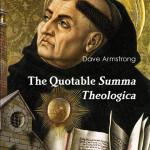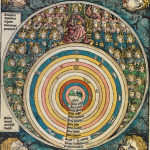Despite being known as reactionary, and often inquisitional, Pobedonostsev, when writing on faith, has remarks which might surprise his readers. He had a tremendous respect for popular piety, because he understood it helped preserves the truth in a way a puritanesque rejection of all that is “superstitious” would allow. Indeed, when one reads what he has to say here, one can understand how and why Pobedonostsev would be a friend and advisor to Dostoevsky – they hold the piety of the ordinary people in common.
He begins his analysis expressing his believe that faith will lead ordinary people to all kinds of pious devotions, and then he expresses the sad fate they often face because others, who are not so simple in their faith, tend to respond to such simplicity with violence:
“The founders of religion recognising from the heights of contemplation the idea of Godhead and its relations to man, evolved in conformity therewith an order of rites and ceremonials inspired by that idea. But the mass of the people remains in the valley, and the light of pure contemplation shining above the hills does not reach it at once. To the people religious sentiments are expressed by a number of ceremonies and traditions which from the austerest standpoint may seem superstition and idolatry. Zealous defenders of the faith, alarmed and indignant, sometimes attempt with violent hand to destroy these external expressions of the vulgar faith, as Moses destroyed the golden calf raised by Aaron at the demand of the people, when the prophet was lost in high contemplation on the summit of Mount Sinai. Thence springs the Puritan zeal of the leaders of religion, passing often to fanaticism.”[1]
The existential angst of humanity, it can be said, leads to religion. Religion is a natural expression of the human condition. Comte and his followers properly understood that those who consider themselves irreligious end up creating semi-religious rituals (such as sports, voting, high school graduations, or the like). Rituals, even when they are not intended to be religious, given time, become religious and are incorporated into a true religious sentiment. Those who are looking for pure religion, of course, will begin to denounce the errors in such religious rituals – they might be right, but they often end up wrong in the way they deal with them. One can be so caught up in God one fails to understand how to relate to fellow humanity, to see the cries of the human spirit being employed by popular piety, and so fail to understand how to raise it up so it reaches God. The cries of the heart need to be heard and admitted. What people do in order to try to deal with the angst they feel must be allowed to be transformed into a bridge by which God and humanity can meet. Indeed, it can be said they have begun making that bridge to meet God. It might be flimsy and full of structural problems, but it is there. Those who feel so far advanced, so far away from such “superstition,” that they end up destroying the bridge instead of fixing it, make sure more and more people end up lost and confused. The solution is to recognize the value of the bridge, the foundation which is there, and to affirm the truths contained in such popular piety. Thus, Pobedonostsev continues:
“But in this envelope of the popular religion, often rude, are hidden elements of faith susceptible of development and sublimation, the germs of eternal truth. In tradition and in ceremonials, in symbolism and in custom, the people sees the actual incarnation of that which expressed in abstract formula would be neither real nor effective. What if destroying the husk we deaden the kernel of truth; if pulling up the tares we pull up also the wheat? What if in striving to purify the faith of the people under the pretext of enmity to superstition we destroy the faith itself? If the forms by which simple men express their faith in the living God repel us, let us remember that it is to us, perhaps, the command of the Divine Master was given: ‘Take heed that ye despise not one of these little ones that believe in Me.’”[2]
Pobedonostsev was no liberal. He was one of the great conservative thinkers of the late 19th century. It put him in an important role in Russian society, for he was to be the chief advisor to the Tsar over the Orthodox Church. He was seen by his critics as being rigid in his governance. He could be quite the censor; men like Vladimir Solovyov had to write in French and publish abroad to make sure their voice could be heard and not squashed by him. Yet, he had quite a bit in common with them, a trust and faith in the people. His talks with Dostoevsky helped produce The Brothers Karamazov, and one can see in it the affirmation of the people which Pobedonostsev raises here. Unlike the typical approach to the faith we find by so-many today, Pobedonostsev did not have a fear of things “pagan,” of things “superstitious.” He did not want error, but he also did not want to have the faith of the people rubbed out by an over-zealous puritanism. He understood that if the people were creating rituals and traditions, even if he questioned them, they were promoting something which needed to be addressed and should not be summarily squashed. He took quite an interest in the people and their faith; he wanted to do what he could to preserve it. His work with the Orthodox Church could be compared to the work of Theophius of Alexandria: the two believed that the simple in faith needed to have their faith preserved, which led to serious consideration and criticism of theological and philosophical views which could confuse them and lead them astray.
To further make his point, Pobedonostsev looked to Islamic tradition and showed what it said on this matter:
“In an Arabic poem we find the instructive parable of the celebrated teacher Djelalledin. Once Moses, while wandering in the wilderness, came upon a shepherd who was praying fervently to God. This was the shepherd’s prayer: — ‘How shall I know where to find thee, and how to be thy servant? How I should wish to put on thy sandals, to comb thy hair, to wash thy garments, to kiss thy feet, to care for thy dwelling, to give thee milk from my herd; for such is the desire of my heart.’ Moses, when he heard these words of the shepherd was angered, and reproached him. ‘Thou blasphemest! The Most High God has no body, he wants neither clothing, nor dwelling, nor service. What dost thou mean, unbeliever?’ The heat of the shepherd was saddened because he could not conceive a being without bodily form and corporeal needs; he was taken by despair and ceased to serve the Lord. But God spoke to Moses and said: ‘Why hast thou driven away from me my servant? Every man has taken from me the form of his being, and the manner of his speech. What to thee is evil, to another is good, to thee it is poison, to another it is sweet honey. To me words are nothing. I look into the heart of man.’[3]
One might be surprised at Pobedonostsev’s use of an Islamic poem; was he not Russian Orthodox, and a leader in the Orthodox Church? Why was he using Islamic teachings to present the truth? Yet, he continued with his exploration of Islam by expressing what he found to be a valuable insight by Rumi, an insight which ends his reflections on faith. In it he points out how it is the cry of love for God which is the sign of one touched by God, a sign of God’s grace acting in their lives giving them forgiveness. It is the sighs of the heart which shows faith; it is the sighs of the heart allows one to be with God and to learn from God. “Thy suffering, thy ardour, and thy zeal, all these are my messengers to thee: when thou strugglest with thyself and cryest for help, by this struggle and cry I draw thee to myself, and answer thy prayer. Thy fear and thy love are the signs of my forgiveness, and in thy words, ‘Oh Allah!’ is a multitude of answers, ‘I am with thee.’” [4]This beautifully expresses Pobedonostsev’s point. Having a Muslim make it demonstrates how far he is willing to go with it. We must look to the hearts of people moved by God, wherever they are, and whatever knowledge of God they do or do not have, and we must go there to find true faith. It is there, in those cries, in such child-like purity seeking to know and understand God, the preservation of the faith is to be had. Yes, theological expositions are important, but without the depth of faith, they are not just empty words, but they are soul-destroying words which shatter the faith of those seeking God.
















